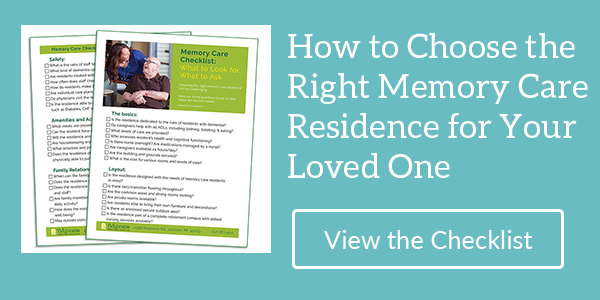Your aging parents might very well need your help, whether it be physically, mentally, emotionally or just financially. But admitting they need that help? Or, more importantly, accepting that help? Well, that’s a different story. In fact, according to a Penn State University study, a whopping 77 percent of adult children think their parents are stubborn about taking their advice or accepting their help.
Still, as tempting as it may be to just throw in the towel when our moms and dads say “no,” most of us know that’s not in their best interest.
So what is there left to do? How can you ensure your parents are looking out for their own well-being when they refuse help and won’t take advice? This guide can help.
How to React to Your Parents’ Refusals
It’s important not to get angry when your parents refuse your help or guidance. After all, they are adults. They have the right to make their own decisions – even if those decisions are bad or harmful to their health.
Keep a calm head when discussing matters with your parents, and try not to get heated if they don’t respond as expected. Be respectful, recognize their right to make this decision, and table the discussion for another time (unless it’s life-or-death.)
You should also make an effort to understand their motivation behind the refusal. Are they scared of change? Are they trying to assert independence? Are they acting out of habit or anger? Are they sad or depressed? Try to get to the root of the problem and, if necessary, enlist a home care specialist who can help them address the issues at hand.
What to Do Next
Your first job is to step back and reevaluate the situation. Just how important is the issue at hand. Is it life or death? Is it health-related? Would your parents be in danger if they didn’t heed your advice?
If it’s inconsequential, it’s likely not worth the effort or frustration on both your parts. If it’s something that absolutely can’t be ignored or left to slide, then take these next steps:
- Re-frame it. If telling your parents they’re hurting their health or their well-being isn’t doing the trick, try re-framing it from another’s perspective. What does their decision mean for their grandchildren? Their spouse? You? Ask them, “Do you want this to be the last time Tommy sees you since he’s going away to college?” or “Do you want me and my brother worrying about you and your health every day?” Giving them some new perspective on the situation may help push them in the right direction.
- Think long-term. Considering talking in the future tense. If your parents care for themselves now, will it allow them to attend their granddaughter’s wedding next summer or join the family reunion in the fall? Will it ensure they’ll be at the birth of your son or the graduation of a loved one? Stress the importance of these events and how heeding your advice now can help them reach those milestones.
- Get help. Trying to change your parents’ minds all on your own is as much an act of stubbornness as your mom and dad’s is. Enlist the help of a sibling or other family member, or even call in a fellow senior and friend of your parents to join the ranks. Knowing their loved ones and friends are worried about them may be enough to push your parents toward accepting help. Just make sure they don’t feel ganged up on or accosted. You want the conversation to be from a place of love and concern – not anger or force.
- Be patient and keep trying. Maybe don’t try again today or tomorrow or even next week, but put it in your mind to have the conversation again. It may take your parents a few weeks or months of sitting with their thoughts, considering your advice and evaluating the world around them for them to finally come around. Don’t give up just because one or two attempts didn’t work. Keep at it, and show them you find this important enough to continue discussing it.
- Offer options. Don’t offer your parents an all-or-nothing ultimatum. Give them power in the decision, and offer them options to choose from. Would they like a home care nurse to stop by once a week and help with medications, catheters and IVs? Would they like someone to stop by just to visit and sit with them? Would they prefer to be surrounded by others their age on a daily basis? Solicit their input, listen to their concerns and desires, and let them have a say in how they live and how they are cared for.
- Consider timing. Be very careful about your timing when having important discussions with your parents. If they’re feeling depressed or anxious or you’re putting them on the spot in front of dozens of people, they’ll likely be less apt to accept your help. Find a time when they’re relaxed, at ease and comfortable, and make sure you’re in a private setting, so they can safely voice their concerns and needs.
- Ask questions. Finally, ask questions. What do they want? What do they need? What sort of help would they be willing to accept? What is absolutely out of the question? Try to come up with solutions that fit their unique situation and mindset, and consider compromising on issues that aren’t life-or-death. The ultimate goal is your parent’s well-being and happiness – and that can’t be achieved without their input every step of the way.
Are you having trouble helping your aging parents? Consider bringing them by Ganton’s Countryside today. With a variety of options, from independent living to home care, there’s something for everyone here at Gantons. If memory loss is a concern and you’re wondering where to go from here, our “Memory Loss and Memory Care Guide” can help provide the information you need to care for your loved one.
For information about Countryside, call Margaret Nagel at (517) 206-5000 or download our brochure to learn about our care levels, cost, and amenities.


